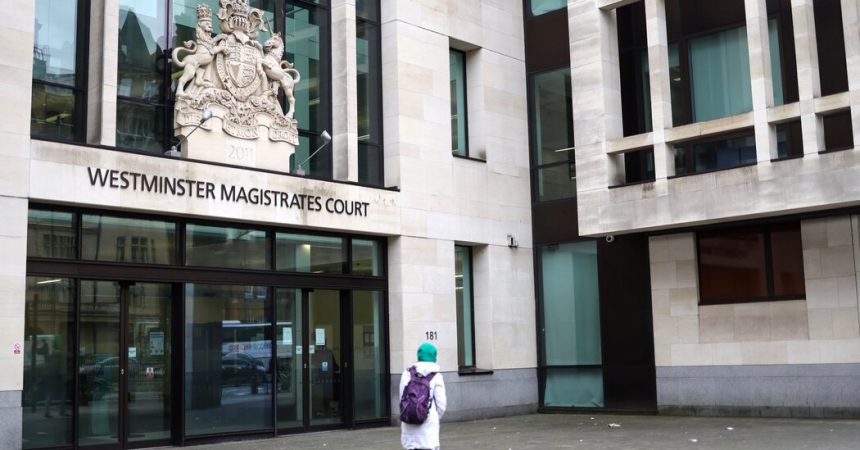Three men have been charged with assisting the Hong Kong intelligence service, the London Metropolitan Police said on Monday, following an investigation in which arrests and searches were carried out across England.
The three people charged under Britain’s National Security Act were identified as Chi Leung (Peter) Wai, 38, of Staines-upon-Thames; Matthew Trickett, 37, of Maidenhead, and Chung Biu Yuen, 63, of Hackney, East London.
“The foreign intelligence service to which the above charges relate is that of Hong Kong,” the police said in a statement.
The three men appeared at Westminster Magistrates’ Court on Monday. As court proceedings are now active, English reporting restrictions apply, limiting what can be reported about the case.
Dominic Murphy, head of the Metropolitan Police’s counterterrorism command, said the investigation was continuing. “While these offenses are concerning, I want to reassure the public that we do not believe there to be any wider threat to them,” he said.
Eleven people in total were detained during the investigation. Eight men and a woman were arrested on May 1 in Yorkshire, in northern England, by counterterrorism police officers. The following day, a man was arrested in London and another in Yorkshire. Among the allegations is that entry was forced into a residential address in Britain on May 1.
The eight people who were not charged have been released from custody. The three who face charges did not enter pleas but were granted bail ahead of their next scheduled court appearance on May 24.
In Britain, China, which includes Hong Kong, has been blamed for several recent cases of spying. “All those accusations are groundless and slanderous,” the Chinese Embassy in London said in a statement.
As for the latest allegations, the statement, referring to the Hong Kong Special Administration Region by its initials, said, “The Chinese side firmly rejects and strongly condemns the U.K.’s fabrication of the so-called case and its unwarranted accusation against the HKSAR government and has made serious representations to the U.K. side on the matter.”
The men’s court appearance coincided with a warning from Prime Minister Rishi Sunak that the country was facing some of the most dangerous years it has ever known.
In a speech in London on Monday morning, Mr. Sunak described China, Russia, North Korea and Iran as a newly assertive “axis of authoritarian states.”
“More will change in the next five years than in the last 30. I’m convinced that the next few years will be some of the most dangerous yet most transformational our country has ever known,” Mr. Sunak said, adding: “Our country stands at a crossroads.”
With a general election expected in the second half of the year, Mr. Sunak’s speech was highly political in tone, seeking to draw dividing lines between his Conservative Party and the opposition Labour Party, which is well ahead in opinion polls. Britain, Mr. Sunak said, would be less safe if Labour’s leader, Keir Starmer, became prime minister.
“Over the next few years, from our democracy to our economy to our society — to the hardest questions of war and peace — almost every aspect of our lives is going to change,” he said.
In a statement, Pat McFadden, Labour’s campaign coordinator, responded that “the only way to stop the chaos, turn the page and start to renew is with a change of government.”







